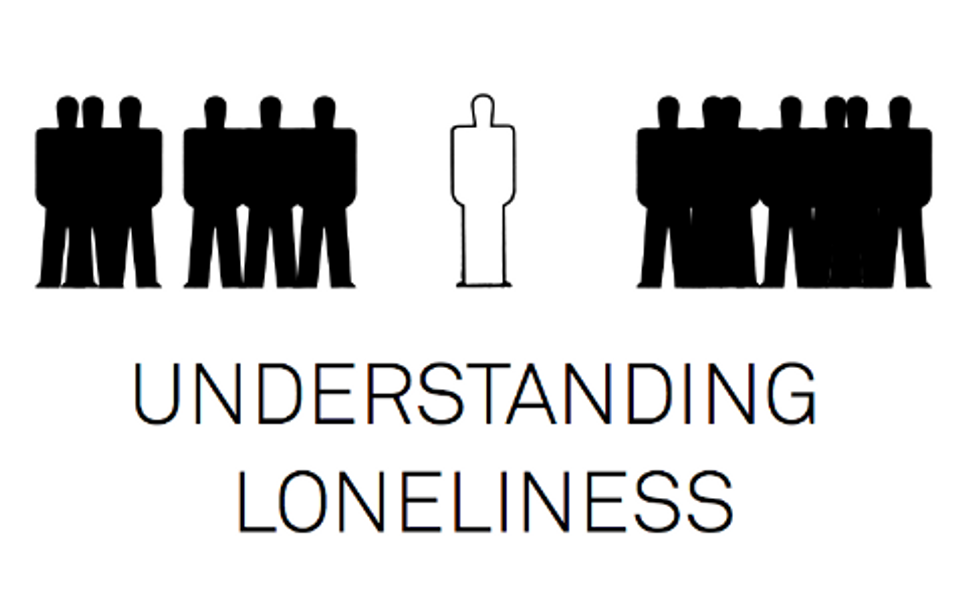Feelings of loneliness are often caused by social isolation, but a person may be surrounded by people and still experience feeling alone. Some people, such as extroverts, may need more social interaction than others to avoid feelings of loneliness, "especially if those relationships are not emotionally rewarding. In fact, Dr. Carla Perissinotto and colleagues at the University of California at San Francisco reported in 2012 that most lonely individuals are married, live with others and are not clinically depressed" (Brody, 2017). Loneliness has become a health crisis as recent studies link loneliness to higher cardiac disease, smoking, and mortality ((Gerst-Emerson et. al., 2015).
FLAKEY FRIENDS
In contrast, others, *cough* myself, highly value a lot of "ME time" and are energized from spending time alone. So, don't worry if your friend flakes on weekend plans every once in a while to stay at home and "do nothing;" they're probably just practicing self-care: sleeping in, eating Captain Crunch in the bathtub, and binge-watching "Game of Thrones" before the finale is released (this is not a paid promotion).
Who is affected by loneliness?
Everyone can experience loneliness. Currently, one in five Americans report that they are chronically lonely. However, some populations experience higher rates of chronic loneliness, such as the elderly and youth.
The elderly, for example, may feel loneliness as they lose mobility and feel isolated from family and friends, possibly having to move into a retirement center.
One health impact of loneliness in the elderly is the relationship between loneliness and acceleration of dementia symptoms and higher diagnosis rates. This may be due, in part, to negative coping behaviors that may accelerate dementia, such as drinking or being sedentary (Personal and Psychological Counseling, 2018).
Loneliness can put people at a higher risk of developing mental illnesses, like anxiety and depression, and they may lack the social support to recognize their symptoms, to help them overcome their condition, or encouragement to seek professional help. Additionally, these conditions often lead to more loneliness because a person may isolate themselves and avoid social interactions. This can result in a depression-loneliness cycle.
Breaking the Depression-Loneliness Cycle
Oftentimes a side-effect of depression is a lack of momentum, or a "failure to launch." Breaking the depression-loneliness cycle means acting in spite of the lack of momentum, or asking other people to help you do so. The following are a few strategies to help you, or someone you know, to combat loneliness that may be perpetuated by depression.
Develop relationships
Strengthening existing relationships or creating new ones can help you establish "accountability-buddies." Having other people involved in your process may help you break the cycle of loneliness and depression which feed each other (Fader, 2018). These should be those you can trust who can help you recognize when you are struggling and can check in with you and help you meet your goals. They can also help encourage you to go out and socialize with them, which can be difficult to initiate or follow-through on when dealing with mental health challenges, but can help you meet new people and rediscover the enjoyment of spending time with friends. Keeping family or close friends in the loop can allow them to know when you are struggling so that they can offer social support.
Try Group Therapy
LIfe Skills and insight: Counselors are professionally trained in coping strategies, communication, goal-setting, stress management… (Yomen, 2017). Practicing these behaviors can help you develop tools for responding or coping to challenges in the future. All of these can help improve one's quality of life and improve mental health. A counselor can help you understand why you are feeling and thinking the way you are. Additionally, a counselor can offer insight into how your thoughts or behaviors may be feeding the loneliness-depression cycle, and how you can work towards breaking it.
Being part of a group where you can share in your experiences helps you feel you are not alone and that you are validated, which provides social support and promote healing. These positive interactions may also increase oxytocin levels, a hormone which produces feelings of trust and connection, strengthening connections which may make you seek out further social interactions. According to a meta-analysis of 40 studies published in the International Journal of Group Psychotherapy in 2009, the "most effective groups have a common identity and sense of shared purpose" (Paturel, 2012). It also offers the opportunity for you to meet new people,
Get a Pet
Companionship: Having a pet can offer you comfort and companionship, especially if you live alone. Pets just want to give and receive love. "In a recent survey by the Human-Animal Bond Research Institute, 74% of pet owners said having a pet improved their mental health" (Robinson, 2019).
Offering your love to another living being and coming home to a pet that is excited for your arrival can help you regain a sense of purpose.
Comfort: Touch releases oxytocin and reduces cortisol. Oxytocin is known as the "love hormone," and it modulates positive social cues like empathy and trust (Keppler, 2019). A swedish study measured the increase of oxytocin in dog-owners as they pet their dog, and found that they "experienced an average oxytocin boost of 6.6 percent" (Petersson, 2017). If you are naturally low in oxytocin, you may be less trusting and more likely to keep people at arms length. Additionally, pets reduce cortisol levels, which is the hormone associated with stress.
Physical Activity and socialization: Dogs in particular require a physical lifestyle, and dog owners are more active on average than non-dog owners (Robinson, 2019). Owning a dog can be a reason to get out of the house and go on walks. Pets can also help you socialize as they are an easy icebreaker, especially with other pet owners. .
























